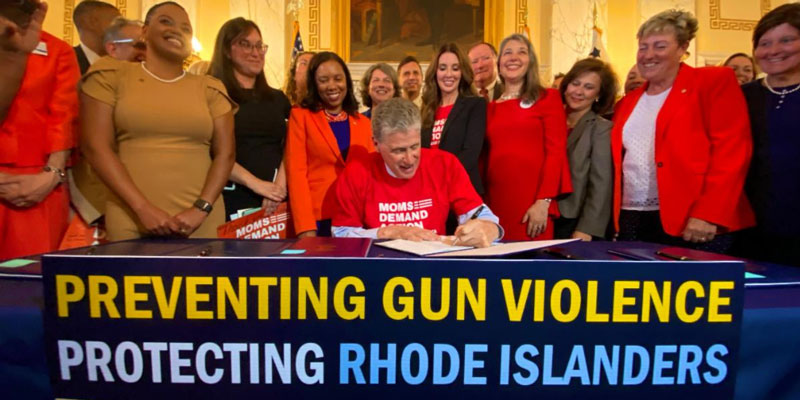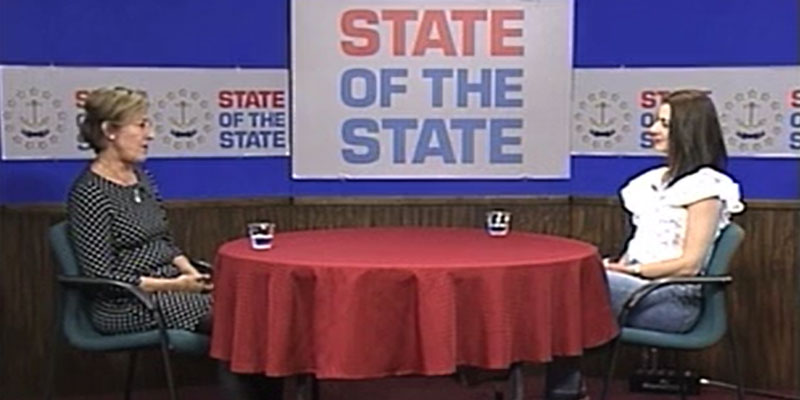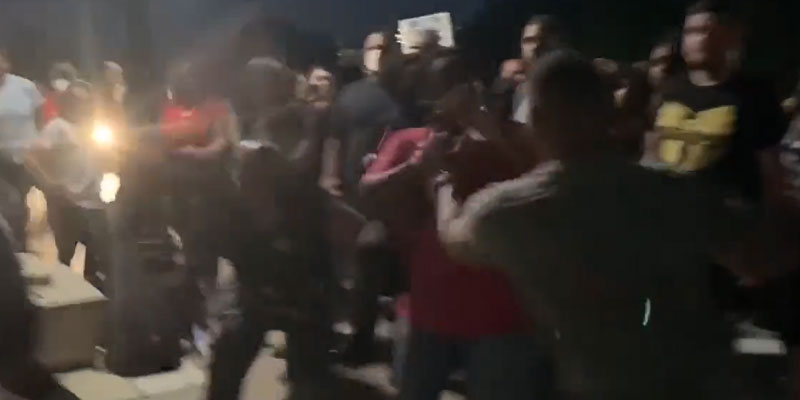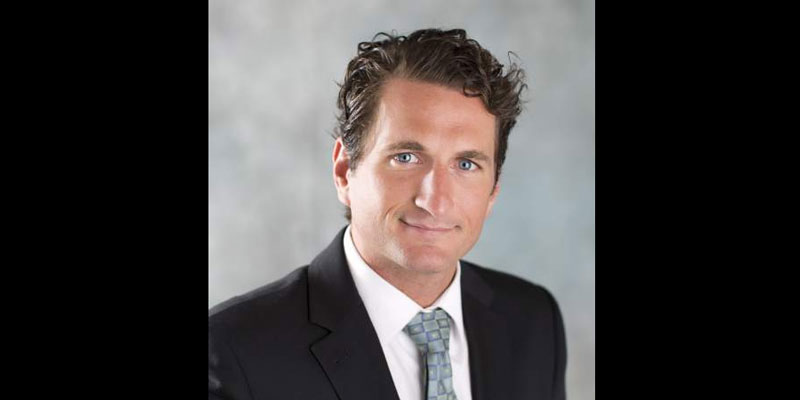The politicians and activists proclaim their value and the news media echoes those claims, but that doesn’t mean legal mandates for “renewable energy” are anything other than a scam to take money from Rhode Islanders and give it to special interests. (Same old same old in Rhode Island, I know.). And so, we get headlines like, “Rhode Island sets ambitious target for 100% renewable energy.”
We can debate whether forcing people to hand their money off to one’s political allies is “ambitious,” but what they’re selling is not what you’re getting. Note the key phrase, which I’ve bolded, italicized, and underlined in the following:
The renewable energy legislation was championed in the state Senate by Senate President Dominick Ruggerio, a North Providence Democrat.
It states that all of the energy provided to Rhode Island by 2033 would come from renewable energy, either directly from renewable energy resources or through offsets in the regional market.
An offset is when a distributor or organization buys credits from an energy producer certifying that they’ve produced “renewable energy.” That is, the non-renewable energy that the distributor or organization is using is “offset” by paying extra for the renewable energy that somebody else is using. One hundred percent of their energy could be produced by burning the dirtiest fuel they could find in an open bonfire, but if they give money to special interests that produce energy by a politically preferred process, they can be certified as clean and moral.
It’s a scam. You pay, and they take a bow (and by means direct and indirect, collect a portion of your money).
One might think that in the era of information technology the paying public would be able to see right through the con, but the additional risk of exposure only means that the con artists have to cut in those who could expose them, including as a payoff to go after and discredit those who attempt to do so anyway.
Featured image by Nicholas Doherty on Unsplash.
[Open full post]Oddly, that’s a question Melanie DaSilva doesn’t manage to answer in her WPRI article about the plans of local police to put license plate recognition cameras on both sides of the bridge that connects Portsmouth and Bristol. It’s almost as if a paragraph is missing:
[Investigating criminal activity is] not what [the cameras will] be used for on the bridge, according to Bristol Police Lt. Steven St. Pierre.
St. Pierre said the license plate recognition cameras will alert police when those people drive over the bridge, giving them an opportunity to intervene before its too late.
Who are “those people”? DaSilva doesn’t say. At the very end of the article, St. Pierre insists that the cameras “will solely be used to identify the license plates of people known to be in crisis.” Readers can believe that or not (and we shouldn’t), but the lieutenant’s promise continues to raise the question: Who are “those people”?
When people tell their therapists that they’re not feeling great, do the therapists put them on a list that tracks their license plates? Or is there a sort of “red flag law” (whereby family members and others can get the police to confiscate people’s guns by telling them they’re worried they’ll use them) for unhappy people?
And if such a system is in place, how many of the people whom officers stop from jumping (or who do jump) would have triggered it? DaSilva reports that officers are called to the Mount Hope Bridge an average of 200 times per year. (Actually, she reports the five-year total, making the numbers seem much more significant.) Of those, about a dozen are “to assist people in crisis.” So, the next relevant question is how many suicidal people police are too late to save. How many times have they been called to the bridge to help somebody and just missed their plunge to death? If that has never happened, or if examples are vanishingly rare, why do we need to take another step toward a total surveillance state?
Something has shifted in the past decade. Ten years ago, even Rhode Islanders would have raised some noise about the prospect of being tracked as they traversed a bridge that is central to East Bay life. Now the police just go ahead and start the program without anybody’s caring to explain how it works or what safeguards are (or aren’t) in place to protect the rights and privacy of the vast majority of people who have no thought of jumping off a bridge.
Featured image by Milan Malkomes on Unsplash.
[Open full post]Justin Katz called it early. Bill Bartholomew’s extremely clipped video of Jeann Lugo striking Jennifer Rourke at the State House melee Friday night is a serious disservice to the truth.
Bartholomew’s clipped video doesn’t show what happened leading up to that moment.
So you don’t see Jennifer Rourke laying hands on Jeann Lugo. Without his consent, in a harmful and offensive manner.
You don’t see Rourke pulling on Lugo repeatedly, impeding him from protecting a victim of assault.
You don’t see that Lugo is faced away from Rourke most of the time, focused on protecting someone, so has no idea who is pulling on him and impeding him – has no idea their identity; their gender; their race.
You don’t see that he turns and “neutralizes” – strikes – whoever is stopping him from protecting the assault victim without noticing or caring about their identity; their gender; their race.
Now more video has surfaced – this one, for example, taken by WPRO’s Tom Quinlan – where we can see all of this for ourselves.
But it is way too late now. What quickly circulated nationally thanks to Bartholomew’s very clipped video is the completely false story that a man struck a woman; a white cop struck a black person; a male candidate for public office struck his female opponent – out of the blue, for no reason.
Bartholomew has repeatedly stated, by way of trying to exonerate himself from posting the very clipped, very inaccurate video, that he posted his own full video of the incident on his Twitter feed. Yeah, it’s there. If you spend the time to dig back far enough, you’ll find it.
Fascinating that Bartholomew chose to pin the extremely clipped rather than the full video to the top of his Twitter feed.
And far from exonerating him, the existence of his full video actually incriminates him. Because what he could have done is shared his full video with a comment along the lines, “At minute XX:XX, it appears @JeannCLugo strikes his Senate opponent @JenRourke29”.
That would have been honest and helpful. That would have permitted the world to see the whole incident, including what led up to Lugo striking Rourke.
Instead, Bartholomew created a video so short and so inaccurate, it is a lie. And the “lie” went viral, was picked up by every news outlet under the sun, was viewed millions of times and thereby created a false narrative of what happened.
Of course, Jeann Lugo should press assault charges against Jennifer Rourke. As should the man whom she is clearly seen shoving in the video.
But Jeann Lugo should also sue Bill Bartholomew for defamation. Bartholomew’s extremely clipped video has seriously endangered Lugo’s opportunity for justice. And it is clearly grounds for a defamation suit because it has harmed his reputation and cast him personally in a negative light by creating a completely false narrative of the incident that night.
I would further argue that Lugo actually has an obligation to file suit because such litigation is a righteous and powerful way of discouraging the future creation of such false, harmful videos, particularly by people who reach for stepped up credibility by conferring on themselves the title of Journalist – something that, remarkably, Bill Bartholomew does.
[Featured Image Credit: screenshot from Tom Quinlan’s video of the melee.]
The image used as the featured image of this post shows Rhode Island Democrat Governor Dan McKee signing gun control legislation recently at the State House, and even people who support the outcome should be concerned by it.
For the good of our states and our country, Americans used to have a clear, if undefined, expectation that elected officials would maintain a line between their roles as partisan actors and as representatives of the entirety of the people. Yes, legislation is inherently political, and signing it into law is the culmination of a political process, but it is still an official act of the governor. Making a ceremony of such an act is not wrong, but wearing an activist’s t-shirt and sitting behind a campaign-style banner while doing so is.
Even these days, Americans display a vague preference for legislation that can at least technically (even if misleadingly) be called “bipartisan.” By signing this legislation in this way — particularly in consideration of its implication for fundamental Constitutional rights — Governor McKee sends a signal that the people who wore yellow shirts to protest the proposals have zero standing with him as their governor. It’s a show of contempt, and those folks — we — might reasonably feel as much contempt for the governor as he displays for us.
Having a sizable portion of the population feeling despised by, and despising, the heads of our shared government is not a healthy development, and it will come back to hurt our society, although the connection may not be immediately obvious.
Most concerning of all is that nobody in our local mainstream is offering cautionary notes, which suggests that the Ocean State is not capable of self-correcting so as to avoid the worst of the possible consequences.
Featured image downloaded from Rhode Island Monthly, courtesy of the governor’s office.
[Open full post]On WNRI 1380 AM/95.1 FM, John DePetro and Justin Katz discuss:
- Conflict and doctored videos at the pro-abortion protest
- Abortion in RI
- Gun rights take a hit
- A shifting balance in the governor’s race
- New poll numbers for Biden and RI races
Featured image by Anton Steenbergen on Unsplash.
[Open full post]Guest: Kate Duffy, Interventionist and Recovery Coach, Tipping Point Recovery, kate@tippingpointrecovery.com
Host: Darlene D’Arezzo Time: 30 minutes
Description: Duffy begins with a candid account of her own addiction to alcohol and its impact on her life, her family members and her current work as an intervention and recovery coach. She describes the trials, challenges, and failures of getting the help she needed. Over time and with greater self-awareness, she eventual succeeds in becoming sober and begun her transition to becoming a helpful agent of change for others. She now is President of Tipping Point Recovery and continues to work with persons with addiction problems and provides training to others to become effective mental health practitioners themselves. www.tippingpointrecovery.com
First things first: It is very difficult to imagine circumstances that entirely excuse the actions of Jeann Lugo in a five second clip from last night’s pro-abortion rally at the State House. Lugo is a muscular man with police training. Striking a woman — progressive candidate Jennifer Rourke — should not be something he would do except in extreme circumstances where it is unambiguously justified.
Along those lines, however, the second point is this: Bill Bartholomew, who is basking in the attention of this clip, is a far-left commentator and activist, and the clip is only five seconds long… and that’s with the speed slowed down. The real time that it reflects is probably more like one or two seconds. Even as short as it is, the facts of the video should raise red flags for any responsible journalist.
It’s clear, for one thing, that the action was under way and that Bartholomew carefully clipped the video to show the objectionable moment, slowing it down to further distort reality. Consider this, from WPRI:
12 News reached out to Lugo regarding the incident. Lugo said he was “in a situation that no individual should see themselves in” Friday night.
“I stepped in to protect someone that a group of agitators was attacking,” he said in a statement. …
Tensions appeared to reach a boiling point at Friday’s rally when counter-protestors entered the crowd and began shouting. The Rhode Island State Police confirmed two people were arrested, though neither have been identified.
Lugo was not arrested nor charged Friday night…
Given this limited information, the reality of the incident could be very different from what Bartholomew chose to portray, which national media has taken up enthusiastically, because it is so deliciously in keeping with their preferred narrative. They find it helpful to counterbalance insurrection-like rhetoric from abortion advocates and an attempt to assassinate conservative Supreme Court justice with an attack on a pro-abortion black woman.
It could be, for instance, that pro-abortion activists outside the Rhode Island State House (the large, bald man crouching next to Jennifer Rourke or the three large men behind her in the video, perhaps) were attacking a pro-life man or woman who was counterprotesting, and Lugo stepped in, as he says. Perhaps in the seconds before Bartholomew’s clip, Rourke was attacking Lugo, and the two swings shown were simply him defending himself.
We can’t tell. Bartholomew has chosen to keep America in the dark on this question, and Rourke is predictably casting the incident in the most politically helpful light for herself and her cause.
Bartholomew should release his full video. Frankly, a responsible state and national news media would be demanding that he do so before giving him all this attention. If, as seems likely, he deliberately cropped what he released, it would be interesting to see Lugo sue him for damages for a high-tech form of libel.
In any event, nobody should have any confidence that Lugo will get a fair hearing. Rhode Island is simply not that sort of place, anymore, which is a much more profound story that nobody is covering. As evidence, observe whether anybody else raises these points, whether anybody in the state airs my expression of them, and whether the only attention that such points receive is condemnation as if it is beyond the pale even to raise such questions.
ADDENDUM (11/19/22 8:49 a.m.)
Having had cause to revisit this incident, I note that clarification is necessary. The day before the clip in question, Bartholomew posted a clip of about two minutes of the incident ending just after Lugo and Rourke’s confrontation. He then clipped it and slowed it down for the post that went viral, which he pinned to his stream, as I recall, as the other video was pushed down. I may have missed the earlier videos because he started them with his podcast logo, so not reading the text, I thought they were just episodes.
In any event, the doctored short video was clearly cut too short and shouldn’t have been slowed down, certainly for an isolated tweet meant to stand on its own. Ethan Shorey of the Valley Breeze has insisted that Bartholomew’s action is no different than how TV news handles clips from time to time. The difference is that TV journalists will typically include extended clips side-by-side with the doctored one, to provide context. Bartholomew could have done the same. He could have provided a link to the earlier video right in the same tweet. At a minimum, he could have immediately added the full video as a comment to the clipped one, which he did not do for a week, when somebody asked for it, and after other people’s extended videos had been released.
[Open full post]What did they change?
Well, there was a rule that said mommies had to be allowed to kill their babies before they were born everywhere in the country, and the court said states could decide whether or not to keep that rule.
Why would mommies want to kill their babies?
[Open full post]Honestly, I never thought I’d see the day, but the Supreme Court has overturned Roe v. Wade, which invented a Constitutional right to abortion across the country. To this day, many Americans don’t realize just how radical the judicial legislation was, making the United States much more extreme than most of the world, with abortion up to the point of birth and so on.
As if to provide an explanation for that lack of knowledge, the news reporters, as in this Associated Press article published by WPRI, are doing their part to support the party and facilitate division and hostility with raw propaganda. At least they’re continuing to make it easy to identify them for what they are. Americans should brace, however, for craziness and outbursts from the political Left, for whom abortion is something like a sacrament and whose party, the Democrats, is desperate for subjects to rile up their voters and distract from the catastrophe of their governance.
A reasonable assessment should begin with facts and the legal process. Overturning Roe means only that the decision must be made at the state level, and states will vary from total bans to a complete absence of restrictions, and even taxpayer subsidies for abortion. On this issue, people will once again be able to exercise the fundamental right of choosing the sort of society in which they wish to live. Allowing us to do that, while remaining one people working together, is the entire point of the American experiment. Along those lines, most states will probably fall somewhere in the compromise zone, setting some point of gestation at which unborn children may no longer be killed.
Moreover, one of the bulwarks of our Constitutional system has held firm, for now, albeit with a half-century delay. The Supreme Court should not simply be a mini legislature to enact policies that elected officials are unwilling to enact.
Unfortunately, the Left will push the opposite conclusion — that they must manipulate the political process until they control the court once again, almost certainly with an amplified madness.
So, the work falls to all of us. The Supreme Court has upheld the obvious conclusion that the Constitution does not guarantee the right to kill unborn children. Now, more than ever, we have to defend reason, the rule of law, and the reality of biology against the forces of destabilization.
[Open full post]Voters (and other citizens) very often make claims about what attributes they want in elected officials that they do not substantiate with their support. They say they’d prefer public servants who are not career politicians and who are in it for “the right reasons,” by which they generally mean they are not merely seeking power or acting on behalf of special interests, whether economic or ideological, but they make no decisions that encourage the good or discourage the bad. Consequentially, we do not foster a political system with incentives for the people we say we want in office.
And so, hitting the inboxes of supporters and journalists this morning is a letter from Republican House Minority Leader Blake Filippi saying he will not seek reelection:
Now having served in the General Assembly for eight years, nearly 20% of my life, I have struggled about whether to seek another term in office. The time is now to step aside and for new public servants step up and serve our communities in the House.
While I will not run for reelection, I intend to remain deeply engaged in our beautiful corner of the world. The art of the politics, as is the art of life, is all about human connection and the friends we make along the way. I cherish our friendships and look forward to nurturing them in the years ahead.
There is nothing in Rhode Island politics for somebody whose principles align with the Republican Party. No infrastructure exists to make it financially reasonable for a talented person to stay in the game (let alone make a career of public service), such as the Democrats display when they shuffle their members from office to non-profit to union to government job to office. Meanwhile, the nifty experience of being in the news is severely tainted when a market’s journalists have uniformly adopted the narrative that you are on the side of evil by nature of the party to which you belong. Indeed, the culture and practice of demonization diminishes every ancillary benefit from the modest prominence that running for and winning elected offices provides.
Just as one cannot blame members of the “productive class” who’ve been leaving Rhode Island for decades because they will be better able to translate their talents and efforts into stable lives for their families elsewhere, one cannot be surprised that a competent man like Filippi has concluded his time is better spent on other endeavors as he enters middle age. Sooner than later, Rhode Islanders will come to regret that they have not maintained a system in which such people apply their talents and efforts to making our community vibrant, full of opportunity, and reasonably run.
[Open full post]










